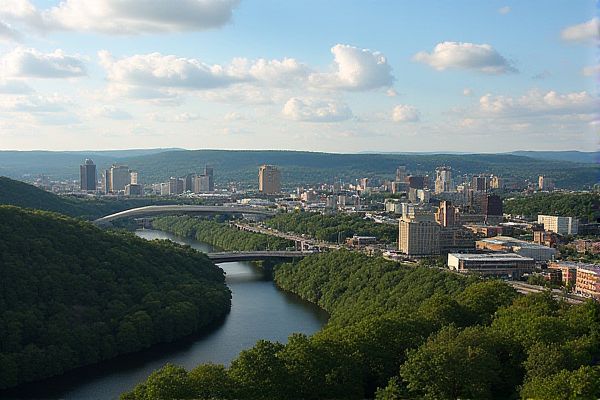
Local laws and regulations in Maryland: Maryland driver's license requirements. State tax obligations. Building and zoning laws. Tenant rights and responsibilities. Gun ownership laws. Noise ordinances. Business licensing requirements. Environmental protection regulations. Child custody and support laws. Traffic and parking regulations.
Maryland driver's license requirements
To obtain a Maryland driver's license, applicants must meet specific requirements, including obtaining a Learner's Permit at 15 years and nine months old, completing a vision screening and knowledge test, and fulfilling a 60-hour supervised driving requirement. For those under 18, additional steps include holding the Learner's Permit for nine months, completing a driver's education course, and adhering to restrictions on the Provisional License before it converts to a full driver's license at age 18. For detailed information on these requirements, interested individuals can visit the Maryland Driver Licensing Law page.
State tax obligations
In Maryland, state tax obligations encompass a graduated income tax with rates ranging from 2% to 5.75%, alongside a 6% statewide sales tax offering exemptions on essential items such as groceries and medical supplies. The state also imposes an average property tax rate of 1.05% on a home's assessed value. Furthermore, residents face local income taxes, which vary from 2.25% to 3.2% and are implemented by the state's 23 counties and the city of Baltimore. For more detailed information on these tax obligations and exemptions, the comprehensive State Taxes Guide provides valuable insights.
Building and zoning laws
In Maryland, building and zoning laws are governed by local regulations that vary by county. These laws include specific zoning classifications, height and setback requirements, and procedures for amending zoning maps, with each county maintaining its own zoning code and map, as seen in Baltimore County's Detailed Guide to Zoning Regulations.
Tenant rights and responsibilities
In Maryland, tenants have the right to a safe and habitable living environment, access to essential utilities, and protection from improper evictions. They are responsible for paying rent on time, keeping the unit clean and in good condition, performing small repairs, and not disturbing neighbors or other renters. To learn more about these rights and responsibilities, you can refer to the comprehensive guide on Maryland Landlord-Tenant Law. Understanding these laws is crucial for both tenants and landlords to maintain a harmonious living situation.
Gun ownership laws
In Maryland, gun ownership is heavily regulated: individuals must be at least 21 years old, complete a firearm safety training course, and obtain a Handgun Qualification License (HQL) to purchase or possess a handgun. Additional requirements include background checks, a seven-day waiting period, and registration of the firearm with the Maryland State Police. For more detailed information on these regulations, you can visit the Maryland Gun Laws page.
Noise ordinances
In Maryland, noise ordinances are governed by state and local regulations, designating maximum sound level limits tailored to different land uses such as residential, commercial, and industrial areas. These regulations specify decibel limits for both daytime and nighttime, with residential areas typically adhering to 65 dBA during the day and 55 dBA at night. It is within the jurisdiction of local governments to enforce these standards, granting them the authority to adopt Noise Control ordinances that are at least as stringent as state-imposed regulations.
Business licensing requirements
In Maryland, business licensing requirements vary by industry and location; there is no general state business license, but occupational licenses and local licenses may be necessary, with applications typically involving basic business information and specific requirements depending on the municipality and business activity. For detailed guidance and specific requirements, the LLC University website provides a comprehensive overview of Maryland's business licenses and permits.
Environmental protection regulations
Maryland's environmental protection regulations are compiled in the Code of Maryland Regulations (COMAR), particularly under Title 26, which includes rules on water reuse, groundwater quality, and other environmental protections. These regulations are regularly reviewed and updated through a process involving public hearings, stakeholder input, and compliance with federal standards. For more detailed information, you can explore the Maryland Department of the Environment's environmental protection regulations on their official website.
Child custody and support laws
In Maryland, child custody and support are determined based on the best interest of the child, with child support calculated using a formula that considers the combined adjusted actual income of both parents, custody arrangements, and other factors. To understand more about these regulations and how they might apply, you can explore the detailed Maryland Child Support Guidelines. Child support obligations continue until the child turns 18 or graduates from high school, whichever is later, and can be modified if circumstances change significantly.
Traffic and parking regulations
In Maryland, Traffic and Parking Regulations mandate that vehicles be parked parallel to the right-hand curb or edge of the roadway. This includes specific prohibitions against parking in areas such as intersections, crosswalks, fire hydrants, and private driveways without permission. Additionally, adherence to local ordinances and traffic control devices is required. These detailed regulations ensure orderly and safe use of public spaces, and further information can be found by exploring the Maryland Transportation Code.
